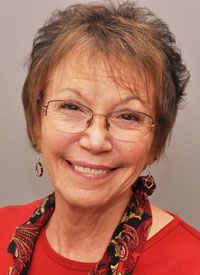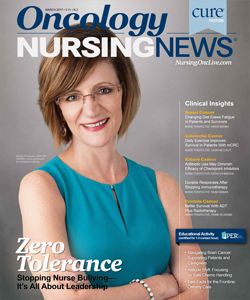Can You Navigate Our Horses Out of the Parking Lot?
When we, as navigators, wake up each morning, we never know what we will be asked to accomplish in the care of our patients and their families.
Penny Daugherty, RN, MS, OCN, ONN-CG

Penny Daugherty, RN, MS, OCN, ONN-CG
As nurse navigators, we are asked to provide many varied services for our patients, and most of us have stores of resources “at the ready.”
This particular summer day brought a whole new and unique dimension to my life as a navigator—and one I would eventually come to treasure. The first call came at 8:30 am from Dr. G, who told me he had a patient newly diagnosed with ovarian cancer (LM) who he wanted me to see, adding at the end of his request, “There may be a little more to her needs than meets the eye …” He laughed, which definitely made me suspicious.
I met with LM and her husband who told me they were trail riders from North Canada and had traveled to north Florida to meet up with one of their American clubs to ride with. On the way back home, LM began to emergently feel increasingly bloated and after originally being admitted to a small, rural hospital, ended up being transferred to our Northside Hospital Cancer Institute since we have a very well respected gynecologic oncology service.
Because the couple was from another country (with national health insurance that did not “translate” very well to our coverage), we needed to provide Northside Hospital Oncology financial assistance via our Disparities/Financial Navigator Jace Longnecker (a previous contributor to this column series).
The necessities of LM’s life as an inpatient seemed to be all taken care of expediently, as I sat down with LM and her husband and asked if they had any other needs I might be able to assist them with during their stay in our hospital. I was more than a little flabbergasted by their answer, “Do you think you could ‘navigate’ our horses out of your parking lot?”
AN UNEXPECTED REQUEST
Apparently, while we were all scurrying to make sure medical care was being appropriately and efficiently provided, the couple’s 2 (Morgan) horses had been ensconced in their trailer in our hot, asphalt parking lot—in the Atlanta summer. This was nothing I ever expected to be asked as an oncology nurse navigator.
I went back to my office wondering what to do with these horses, knowing that this represented an impending danger to their health, a daunting thought. Given that my husband and I have bred and shown Standard Poodles for many years, I was well aware of the need for proper ventilation for animals, which was not happening in an immobile horse trailer in our parking lot.
At my wit’s end, I called my husband for advice, and he reminded me of a fellow dog show exhibitor who lived in Aiken, South Carolina, a doable (2.5 hr) drive from our hospital so I crossed my fingers and called SR, who never hesitated a moment, offering to drive to Atlanta and rescue our parking lot—orphaned horses. I connected SR and LM, and a few short hours later, the horses were breezily on their way to a lovely, shaded pasture where they could relax and trot around happily.
Next, I assisted our patient to get a very speedy appointment with her oncology provider in Canada, shipped all of her records to the clinic, and also helped to coordinate her flight home postoperatively, because driving extended hours posed a threat of hypercoagulation.
Upon discharge several days later, her husband drove to Aiken, scooped up their 2 horses from the kind Samaritan and met his wife at home where she began her adjuvant care. Several incidentals needed to be faxed and communicated between the 2 hospitals to facilitate LM’s care, and as her nurse navigator, I made sure the transition was smoothly executed. I had many conversations with the medical professionals in Canada, who, as tradition has borne out, always seemed to refer to us in America as “the states”. Having heard this designation for many years, I smiled.
KINSHIP ACROSS THE BORDER
A few months later, one of the Canadian pathologists called me to ask for a particular set of slides. She said she had just spoken to LM and her husband about their experience at our hospital and they’d related their encounter about their horses. It seemed this pathologist was also a horse lover and she was quite effusive in her praise of our American ingenuity to navigate those horses out of our parking lot and into a spacious, comfortable, and shady pasture in Aiken. I really smiled after that happy conversation.
When we, as navigators, wake up each morning we never know what we will be asked to accomplish in the care of our patients, their families, and in this particular case, their very well-loved horses. This is the adventurous journey we’ve each chosen to be personal patient guides through the maze of care and treatments. I will always treasure my experience with LM, her husband, and their beloved horses.
I invite my fellow navigators to share their unique stories in this column. I truly cherish the ability to help my patients each day with any need they have. This encounter just added a little extra spice—and an extra smile to my world.
Penny Daugherty is an oncology nurse navigator specializing in gynecologic oncology and multiple myeloma at the Northside Hospital Cancer Institute in Atlanta.

Latest Conference Coverage
2 Commerce Drive
Cranbury, NJ 08512
All rights reserved.


